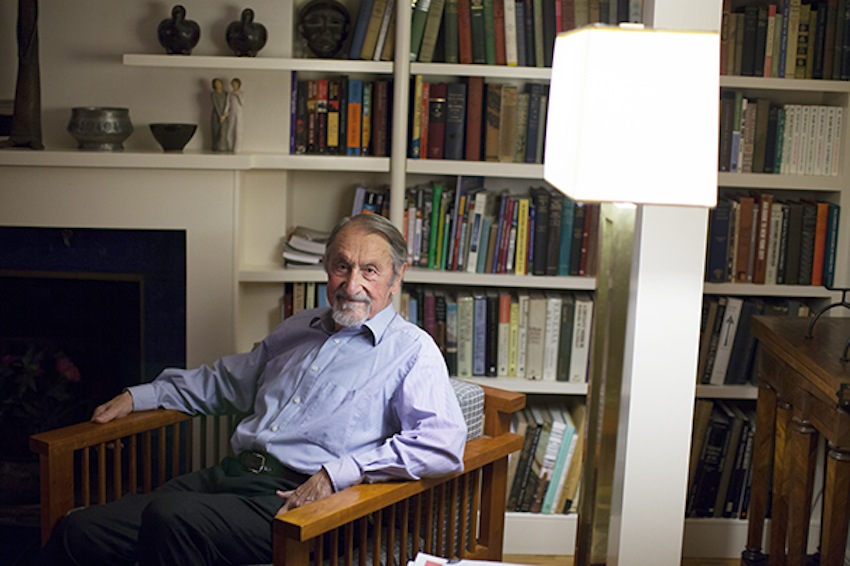Harvard Professor Shares Glory of Receiving Nobel Prize in Chemistry
Add another notch to Harvard’s Nobel Prize achievement belt.
On Wednesday, the Nobel Prize website announced that Martin Karplus, the Theodore William Richards Professor of Chemistry Emeritus at Harvard University, was one of three professors to share the coveted 2013 Nobel Prize in chemistry.
Karplus shares the honor with researchers Michael Levitt of Stanford University, and Arieh Warshel of the University of Southern California, according to the Harvard Gazette. The trio was recognized for their “development of multiscale models for complex chemical systems.”
Karplus’s achievement brings the number of both current and former Harvard faculty members to receive Nobel Prizes to 47.
According to the Nobel Prize announcement:
The work of Karplus, Levitt and Warshel is ground-breaking in that they managed to make Newton’s classical physics work side-by-side with the fundamentally different quantum physics. Previously, chemists had to choose to use either or. The strength of classical physics was that calculations were simple and could be used to model really large molecules. Its weakness, it offered no way to simulate chemical reactions. For that purpose, chemists instead had to use quantum physics. But such calculations required enormous computing power and could therefore only be carried out for small molecules.
Karplus told the Gazette that he started out his morning like any other, with a hearty breakfast, before fielding multiple phones calls following the news that he had been awarded the prize. He then went on to celebrate with some champagne alongside faculty members from the chemistry department.
Harvard President Drew Faust said in a statement Wednesday that the school was proud of the notable achievement, and of Karplus’s “groundbreaking” research over the years. “Professor Karplus and his fellow researchers harnessed the power of technology to map, as the Nobel committee put it in honoring them, ‘the mysterious ways of chemistry.’ In so doing, they reached beyond the boundaries of conventional thinking in chemistry to align the workings of classical physics with quantum physics, and they provided the scientific community with crucial tools that have enabled many of the advances made in contemporary chemistry,” Faust said.



